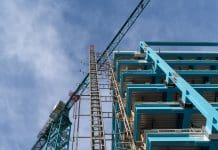MTX Contracts explains how modular construction could benefit emergency services, especially those highly stretched medical services provided in A&E
MTX Contracts believes that the advancement in modular buildings could effectively resolve the difficulties facing our emergency services.
More space rapidly
The stresses and strains on the NHS seem to show up as a potential disaster each year. Politicians and chiefs speak out about how it will be different in the future, and then winter comes again, and a bout of flu causes a crisis, again.
It is possible to resolve space issues for the coming busy period, even if people starting planning for the construction now. Modular construction can be started, completed, and fitted within a few months. The highly engineered spaces are perfect for examination rooms, waiting rooms, consultation suites, in fact, any clinical spaces. There is no need for people suffering one of the worst days of their life to sit in a corridor in public view and without the care they need.
More space cheaply
It is not just that you can get the space needed before the next crisis in emergency care. You can get high-quality facilities for a highly cost-effective price. The NHS budget is a matter for public debate. There are arguments whether there is a need for a further 8 or 10 billion per year to properly fund public healthcare. It is therefore no surprise that new construction is put on hold, when there is probably little money for bandages and syringes.
However, optimal facilities can help to make the NHS more efficient. If wards are being shut down because of maintenance issues; if there are too many nurses for the rooms available for parents; if there is nowhere to store the latest technology – then money is likely being wasted somewhere along the line.
As modular constructors build facilities on a factory production line, with standardised parts and therefore control over the supply chain – then costs of construction are lower than traditional bricks and mortar construction methods. Modular constructors can pass this saving onto the NHS. As soon as there are suitable facilities, any other investments – whether it is staff or whether it is equipment – can work to its full potential.
The efficiencies continue as the building is used. This is an airtight space that requires little heating. Therefore, the energy bills for the running of such module constructions are much lower than traditional builds.
More space with little disruption
One of the biggest challenges for an emergency department is the improvement of facilities while service continues for service users. You cannot suddenly shut down an emergency room. People do not stop crashing cars, falling off ladders and struggling with the effects of a vomiting bug. Therefore, most construction needs to continue while the department continues its work.
Traditional construction methods create dust, create extra traffic, including large trucks, create noise, and more. When people are unwell and struggling the last things patients need to hear is a drill or a constant hammering. There is an increased health and safety risk, with an active construction site mixed with a large influx of the public being around the area.
Modular construction is mostly built offsite. When shipped to the site there is only a small window when there could be any disruption. This does not involve the dirt and the dust, a potential infection-risk, as it does with bricks and mortar building. The level of health and safety risk is reduced substantially for the public and healthcare professionals using the site.
Affordable improvement to a much-needed service
We couldn’t be more grateful for the work of the emergency services. They work diligently within difficult circumstances to help individuals. They save lives. There is an affordable, high-quality solution to improving facilities for these professionals. Modular construction is not the old days of huts in the car park. Modular construction facilities are made of quality materials, which are expected to act as a permanent solution to the current dilemma.
MTX Contracts














